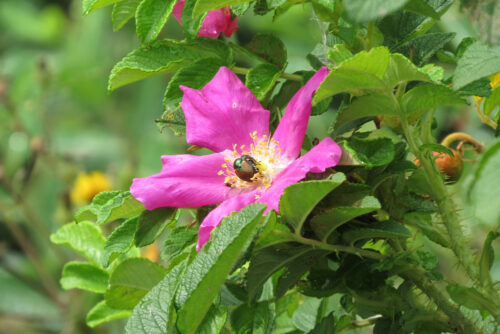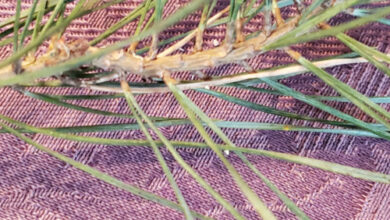Pesticide misuse

Happy Garden Month! While it is too early to start planting tender annuals and seeds, I hope you are enjoying the anticipation of the growing season ahead while you prep the garden and finish planning for this year. As the growing season progresses, it is typical for problems and challenges to arise, sometimes in the form of insect pests and disease. Your first course of action should always be to identify the pest or disease you are dealing with, learn about ways to control the issue, and only utilize pesticides as a last resort. Remember, pesticides are poisons, they are meant to kill and it is very easy to kill good insects, birds, animals and valuable trees, shrubs, and other plants in your landscape if you do not read pesticide labels and follow them religiously.
Last August, Christopher Enroth, a horticulture educator with University of Illinois Extension, wrote in the Good Growing blog about pesticide pitfalls. There are many. Knowingly misusing a pesticide is serious. The EPA approves labels on pesticide bottles and they are the law – they are a legal document. People are often shocked when I tell them home gardeners are the main users of poison in the landscape – not commercial growers who must follow very strict guidelines and apply pesticides only after specialized training. Anyone can walk out of the nearest big box store with a carload of poisonous pesticides for use at home with no oversight. Pesticide use at home comes with a huge responsibility. Many people come looking for gardening advice only wanting a quick fix with chemicals. As stated earlier, you can unintentionally harm or kill healthy wildlife and plants in your yard and/or in the yard of your neighbor by using the wrong pesticide or not following label directions.
In his blog article, Enroth sites numerous examples of pesticide misuse – mainly surrounding lawn care and trying to get rid of household pests. He discusses Tordon RTU use on lawns. Tordon RTU contains picloram and kills broadleaved plants. The label clearly states that Tordon RTU should not be used on residential or commercial lawns or near ornamental trees and shrubs. Homeowners who have used it on their lawns to kill clover and dandelions have found that as the active ingredients move into the soil, (Tordon is highly soluble in water) it also kills their beautiful trees and shrubs. It may take more than one season for the damage done to show. Enroth says in the case of herbicides actually labeled for lawn use, watch out for active ingredients dicamba, 2, 4-D, or MCPP (mecoprop). Again, these herbicides -– meant for use on lawns – target broad-leafed plants. If they spread, they can damage plants like trees, shrubs, perennials, and vegetable crops, which amazingly enough, also have broad leaves.
If you have used poisonous chemicals around the exterior perimeter of your house to kill insects invading your home, don’t use the chemical elsewhere – in your vegetable garden, for example. Enroth says chemical barrier pesticides are meant to last a long time in the environment. Pesticides appropriate for vegetable gardens purposefully will degrade over a much shorter period of time. You will notice labels give waiting times between spraying and harvest. Spraying a chemical barrier in your vegetable garden means you are done – not only no harvesting this season, but the garden plot must remain fallow (unplanted) for an entire year.
Bugs and disease are disappointing and frustrating. Work to educate yourself about organic ways to prevent or mitigate pest and disease damage. If pesticides are truly needed, use only according to the directions on the label.





